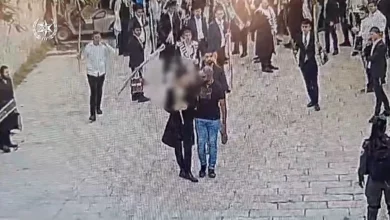Egypt's highest Islamic legal official denied on Tuesday that minority Christians faced sectarian discrimination and said Islamists would win no more than 20 percent of votes in next week's election.
Grand Mufti Ali Gomaa said Egypt had done its best to abolish discrimination against Copts, who make up 10 percent of Egypt's population of roughly 80 million, but a small minority of radical Salafi Islamists were causing trouble.
Coptic leaders accuse the army of not protecting them against Salafi attacks and cracking down more harshly on their protests than others. About 25 died last month when army trucks charged a mostly Coptic protest in Cairo.
"There is no real problem," said Gomaa, Egypt's second-highest Islamic official, whose office oversees the issuing of fatwas, or religious decrees, on application of Islamic law.
The clash last month "was not sectarian violence", he told Reuters at a Catholic-Muslim dialogue conference at the Jordan River in Jordan. "This just echoes the chaotic transition period we have been going through in Egypt." he said.
Gomaa said no more than 250,000 Egyptians were salafists, or radical Islamists, and they and the non-violent Islamist Muslim Brotherhood would win less than one-fifth of the vote.
"In the elections, the Islamists will not get more than 20 percent," Gomaa said through an interpreter. "I'm sure the majority of Egyptians are with the moderate voice of Islam."
Bloody protests against military rule have cast doubt over the timing of the election, but politicians who met military rulers on Tuesday said they agreed the vote would go ahead.
The Muslim Brotherhood won about 20 percent of the last parliamentary vote, when its members could only run as independent candidates, and observers expect its new Freedom and Justice Party to put in a stronger showing this time.
Christian leaders in and outside of Egypt have called on Cairo to thwart attacks on Copts that have increased since the fall in January of former President Hosni Mubarak, whose firm rule kept radical Islamists in check.
Gomaa said violence was unfortunately "in the nature of the transition" and not directed only against Copts.
"Look at what happened in the last couple of days – about the same amount of people were killed," he said, referring to at least 36 dead in anti-military protests since Friday.
The chief mufti said he had received Christian leaders after last month's protest and they told him they wanted the governor of the southern state of Aswan fired because he did not protect them against Salafi attackers.
"I told them this is not a sectarian problem. This is a procedural problem," he said.
Gomaa said religious authorities had issued four fatwas in recent years clearly confirming that Christians had the right to build churches, but the Salafis, who he said are supported by foreign funds, reject them.
"The Salafis are posing a real problem for everybody," he said. "Their orientation will eventually lead to terror."
The grand mufti said Egypt's "moderate voice" was the traditional Islam as preached by al-Azhar, Egypt's prestigious seat of Sunni learning. He did not speculate on the prospects for various political parties.
The moderate Islamist Nahda Party won almost 42 percent of the vote last month in Tunisia's election for a constituent assembly, the first free election there and the first to follow from the popular uprisings of the Arab Spring.
The grand mufti said he thought Egypt should retain references in its constitution to Islam as the official religion and the principles of Sharia, the Islamic moral and legal code, as the "major source of legislation".
"It will be the same as in the previous constitution," he said.
Gomaa, 58, said religious authorities had been in dialogue with Egypt's Christians for years and wanted to help solve their problems.
"In my youth, we Egyptians, Muslim and Christian, lived together without any problems," he said. "I am very hopeful that, when things calm down in Egypt, everything will be resolved."




